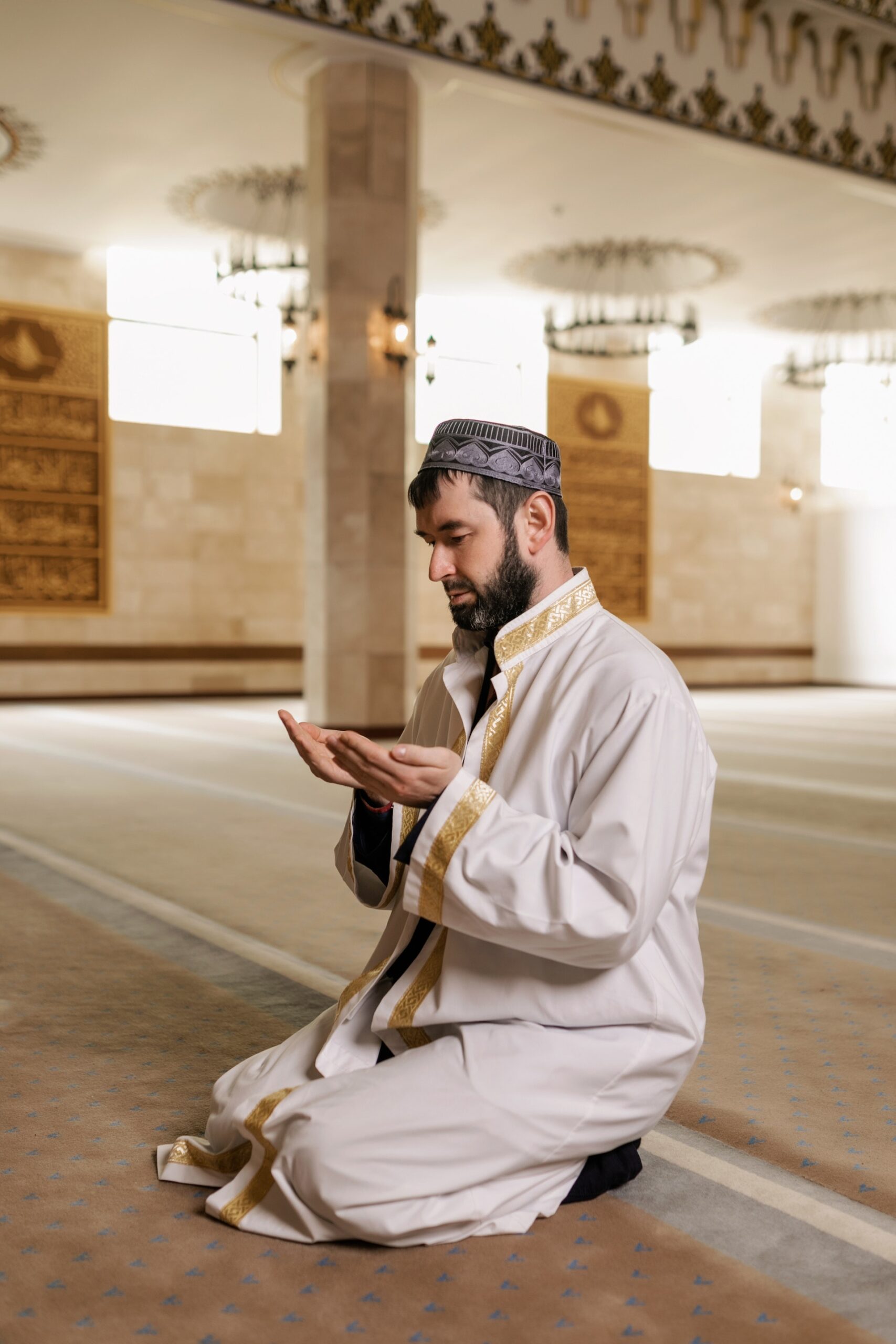Life is full of choices—whether big or small. Sometimes we stand at a crossroads where the decision seems overwhelming: choosing a career path, deciding on marriage, selecting a business opportunity, or even making daily life choices that could have long-term consequences. In Islam, believers are not left alone to wander in uncertainty. Allah (SWT) has provided guidance through the Qur’an, Sunnah, and special acts of worship. One of the most beautiful ways to seek Allah’s guidance is by performing Salat al-Istikhara, the prayer of seeking counsel from Allah.
This article is a comprehensive step-by-step guide on how to perform Istikhara, its meaning, importance, and common misconceptions—so that you can approach it with clarity and sincerity.
What is Istikhara?
The word Istikhara (اِسْتِخَارَة) comes from the Arabic root “khair” which means goodness. Literally, Istikhara means “to seek goodness or guidance from Allah”.
It is not about asking Allah to show you a dream or a supernatural sign, but rather, it is a dua (supplication) combined with a two-unit prayer through which a believer asks Allah to guide them toward what is best in this world and the Hereafter.
The Prophet Muhammad (ﷺ) said:
“If anyone of you is concerned about a decision he has to make, let him pray two units of voluntary prayer other than the obligatory prayers, and then say the Istikhara dua.”
(Sahih al-Bukhari)
Why is Istikhara Important?
- Trust in Allah (Tawakkul): Istikhara strengthens your reliance on Allah’s wisdom rather than your limited understanding.
- Protection from Regret: By seeking divine help, you safeguard yourself from making hasty or harmful choices.
- Clarity of Heart: Istikhara brings peace, removing confusion, stress, and hesitation.
- Strengthening Faith: It reminds us that Allah is Al-‘Aleem (All-Knowing) and Al-Hakeem (All-Wise).
When Should You Perform Istikhara?
Istikhara can be performed for any permissible matter where a person is unsure or confused. Examples include:
- Choosing a marriage proposal
- Deciding on a job offer
- Selecting a business investment
- Moving to a new city
- Making educational choices
It should not be performed for haram (forbidden) actions or matters that are already clear in the Qur’an and Sunnah. For instance, asking if one should engage in dishonest business is invalid.
Step-by-Step Guide to Performing Istikhara Prayer
1. Purify Your Intention
Before starting, make a sincere intention (niyyah) that you are performing Istikhara only to seek Allah’s guidance, not to force an outcome that matches your desire.
2. Perform Wudu (Ablution)
Ensure you are in a state of cleanliness by performing wudu. This is necessary for any salah (prayer).
3. Pray Two Units (Rak’ahs) of Voluntary Salah
- These two rak‘ahs are prayed like any other nafl prayer.
- In the first rak‘ah, after Surah Al-Fatiha, you may recite Surah Al-Kafirun (109).
- In the second rak‘ah, after Surah Al-Fatiha, you may recite Surah Al-Ikhlas (112).
(This is recommended by some scholars but not obligatory. You can recite any Surah.)
4. Recite the Dua of Istikhara
After completing the two rak‘ahs, recite the Istikhara supplication taught by the Prophet ﷺ:
اللَّهُمَّ إنِّي أَسْتَخِيرُكَ بِعِلْمِكَ، وَأَسْتَقْدِرُكَ بِقُدْرَتِكَ، وَأَسْأَلُكَ مِنْ فَضْلِكَ العَظِيمِ، فَإِنَّكَ تَقْدِرُ وَلاَ أَقْدِرُ، وَتَعْلَمُ وَلاَ أَعْلَمُ، وَأَنْتَ عَلَّامُ الغُيُوبِ، اللَّهُمَّ إنْ كُنْتَ تَعْلَمُ أَنَّ هَذَا الأَمْرَ خَيْرٌ لِي فِي دِينِي وَمَعَاشِي وَعَاقِبَةِ أَمْرِي، فَاقْدُرْهُ لِي وَيَسِّرْهُ لِي ثُمَّ بَارِكْ لِي فِيهِ، وَإِنْ كُنْتَ تَعْلَمُ أَنَّ هَذَا الأَمْرَ شَرٌّ لِي فِي دِينِي وَمَعَاشِي وَعَاقِبَةِ أَمْرِي، فَاصْرِفْهُ عَنِّي وَاصْرِفْنِي عَنْهُ، وَاقْدُرْ لِيَ الخَيْرَ حَيْثُ كَانَ، ثُمَّ أَرْضِنِي بِهِ
5. Mention Your Specific Need
When you reach the phrase “اللَّهُمَّ إنْ كُنْتَ تَعْلَمُ أَنَّ هَذَا الأَمْرَ…” (“O Allah, if You know that this matter…”), mention the specific matter you are seeking guidance for, either in your heart or verbally.
For example: marriage to a specific person, choosing a job, or moving to a city.
6. Complete the Dua
End the dua with humility, asking Allah to guide you toward what is best.
7. Trust the Outcome
After Istikhara, you should proceed with your matter and trust that whatever unfolds is what Allah has decreed for your good. It may come through ease, opportunities, or even obstacles that prevent you from pursuing the matter.
Common Misconceptions about Istikhara
- Dreams Are Required: Many believe that Istikhara must result in a dream showing a clear sign. This is not supported by authentic Hadith. The outcome can be felt through ease, clarity, or circumstances.
- Colors in Dreams: Some think that seeing green means yes and black means no. This is a cultural belief, not from Islam.
- Only Scholars Can Perform It: Every Muslim can perform Istikhara for themselves; it’s not restricted to imams or pious people.
- Instant Answers: Istikhara does not guarantee immediate clarity. It may take time, patience, and repeated prayers.
How Many Times Should Istikhara Be Performed?
Scholars say Istikhara can be performed once with sincerity, but it is also permissible to repeat it multiple times, especially if uncertainty remains.
Signs That Your Istikhara Has Been Answered
- A sense of peace or comfort about the decision
- The matter becomes easy to pursue without obstacles
- Or, Allah diverts you away through difficulties, rejection, or inner discomfort
Remember, Allah’s answer may not align with your personal desire but will always be what’s best for you.
Practical Tips for Performing Istikhara
- Perform it during the night before sleeping, although it can be done any time except the prohibited hours of prayer.
- Be consistent in regular dua along with Istikhara.
- Consult with trusted scholars, parents, or mentors after Istikhara for added clarity.
- Accept the result with an open heart, even if it is different from what you initially wanted.
Frequently Asked Questions (FAQs)
1. Can Istikhara be done for someone else?
Yes, you can make dua for others, but Istikhara prayer is ideally performed by the person concerned.
2. What if I don’t know the Arabic Dua?
You can read the dua in transliteration or even in your own language until you learn it in Arabic.
3. Is Istikhara only for big matters like marriage?
No, Istikhara is for any decision, big or small, as long as it is halal.
4. Can women perform Istikhara during menstruation?
Since women cannot pray during menstruation, they may recite the Istikhara dua directly without the two rak‘ahs.
Conclusion
Istikhara is not just a prayer—it is a mindset of trusting Allah’s wisdom above our own. Performing it with sincerity opens the heart to divine guidance and protects us from regret.
The Prophet ﷺ’s teaching of Istikhara shows Islam’s practicality and spiritual depth: we are not left to struggle alone in confusion, but rather given a way to connect with the Creator for clarity and peace.
So the next time you face a decision—big or small—turn to Allah with Salat al-Istikhara. Perform it with humility, patience, and full faith, and trust that Allah will guide you to what is best.




